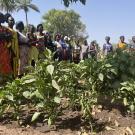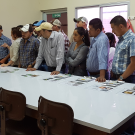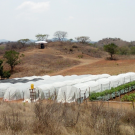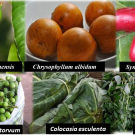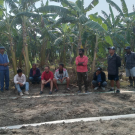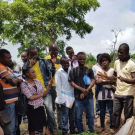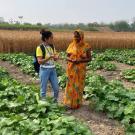Growth in the agriculture sector has been shown in some areas to be more effective than growth in other sectors at lifting people out of poverty — increasing food availability, generating income from production, creating employment and entrepreneurship opportunities throughout value chains, and spurring growth in rural and urban economies. Fruit and vegetable production and markets have a big impact, as these crops generate high economic returns per unit of land. Farmers who grow high-value horticulture crops consistently earn more than those who grow other commodities, allowing smallholder farmers to derive additional income and driving agricultural and economic diversification. Innovation in horticulture crops, including postharvest entrepreneurial opportunities, offer increased production, value-added income, and long-term investment opportunities.


